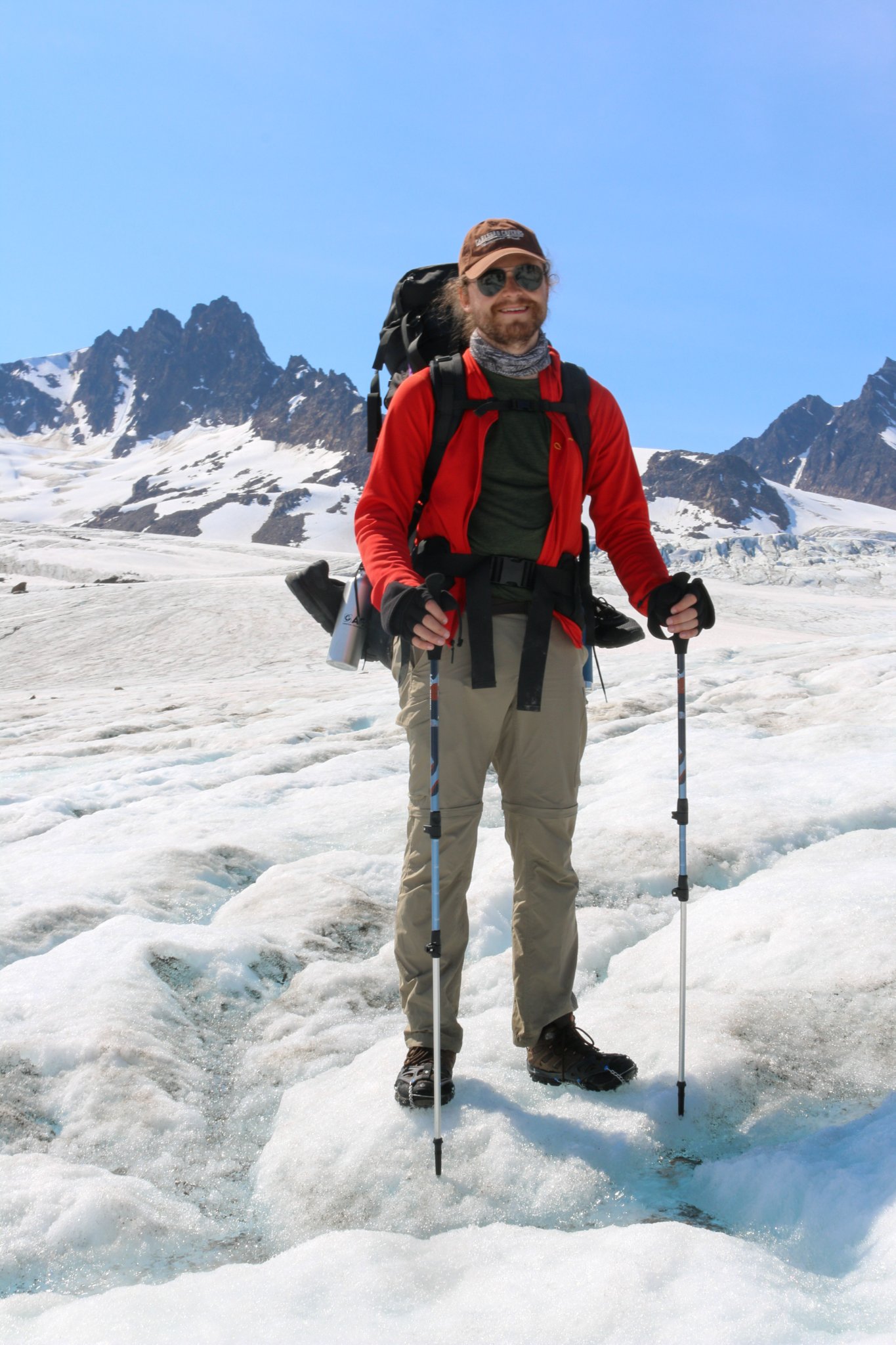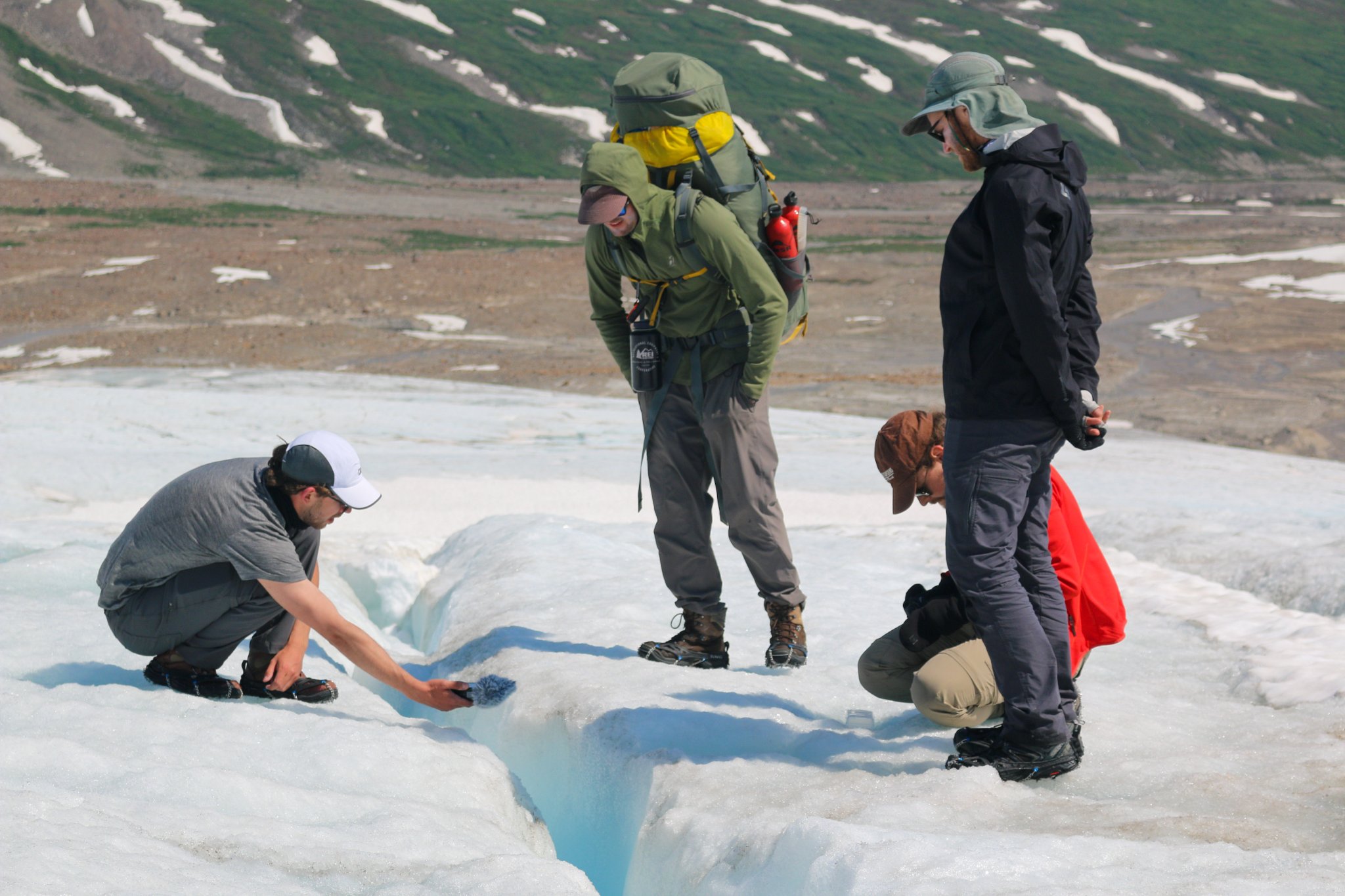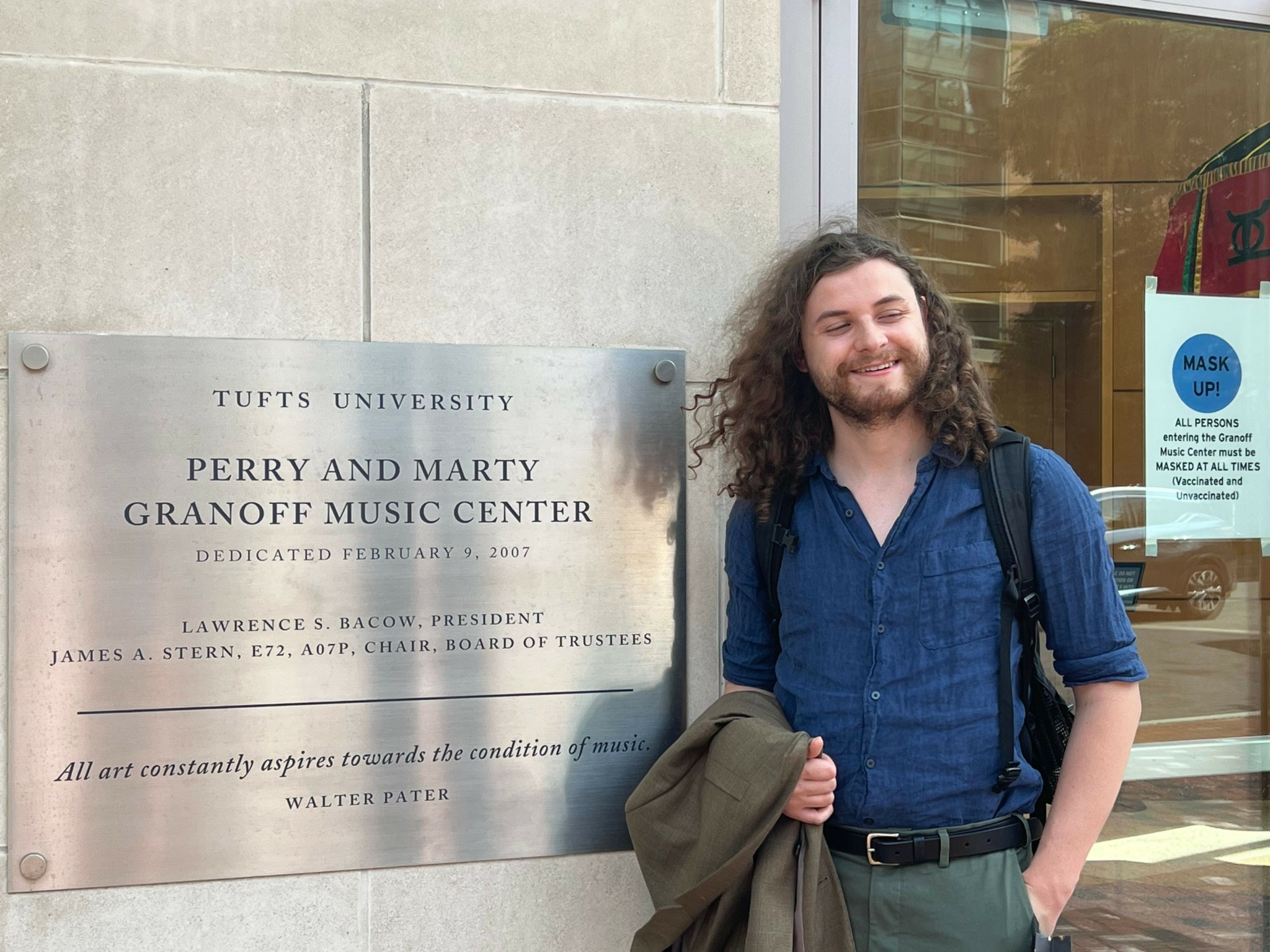We’re excited to introduce you to the always interesting and insightful Alan Mackwell. We hope you’ll enjoy our conversation with Alan below.
Alan, thanks for taking the time to share your stories with us today What’s been the most meaningful project you’ve worked on?
Back in September of 2024, I had an artist residency at the TANK Center for the Sonic Arts, which is based out in Rangely, CO. This residency was established by the B2 staff here at the University of Colorado Boulder and the TANK folks in order to facilitate the growing relationship between the two institutions while giving CU students and alumni access to the TANK Center facility for creative projects and community engagement.
My music has always been about resonance, to a degree. I love super resonant spaces, and I love what those spaces do to sound. It’s an intrinsic part of my musical language and is something I listen for constantly. As such, people have told me for years (well before I moved to Boulder!) that I need my music in the TANK. I will admit I cried a little out of pure excitement when I was granted the residency before I immediately set out to make my high-resonance dreams a reality.
My music is super landscape-oriented, and for the last few years I have been focusing on northern New Mexico, where I spent much of my childhood. I had written a string quartet earlier in 2024 about the natural landscape around my mother’s house. I was never really satisfied with how I handled that material though so I shelved the piece. That said, I recognized that I was working with some really interesting ideas, (specifically the relationship between the Galisteo Basin landscape and the rail) and so I decided to explore them in greater depth with this new TANK piece.
I settled on writing a large-scale work for string trio, something multi-movement that could give me a ton of space to use all the bowed string playing techniques I knew with all sorts of dynamic contrast. I was just super excited to hear how all those sounds would change in a space with 50 seconds of natural decay, which further incentivized me to include some field recordings I took in the Galisteo Basin into the sonic mesh I was creating.
You know I like talking about my compositional process because generally it’s all about landscapes and their sounds colliding with music in my head, which I find to be the most exciting thing about what I do. It’s not that meaning or narrative isn’t prioritized, of course, it’s just the way I think. But this piece is unusual because the meaning of it -the shape, texture, and images- began taking on new forms almost immediately. When I was a kid, my brother and I were in a car accident that involved a collision with a train. That moment has haunted both of us ever since in ways even we may not even recognize. And so here I was, at my manuscript, placing myself beside the rail line that cuts through my beloved childhood neighborhood, tracing with my imaginary fingers the places where the rail had been out there in the middle of that deeply still high desert but had long since vanished. Imagining those spaces reminded me of just how healing they had been when I was kid, alone in the desert, standing beside the rail, this fading beast of a memory for myself and the Galisteo Basin. It ultimately recontextualized how I processed those memories and in all that desert quiet I found myself able to revisit the good, lasting memories of the accident; all the family and friends that visited me and cared for me, the long conversations with my brother, and perhaps most poignantly one of my most treasured memories: waking up in the middle of the night in the scary darkness of the hospital, peering around the side of my bed to see my father asleep on my hospital room floor without pillow or mattress so that I would not be there alone. The subsequent feeling of warmth and safety is one I have since synonymized with those quiet moments beside the rail out there in the desert, and one I ultimately dedicated myself to imparting in the string trio I wrote for the TANK.
All this said, the trio (which I titled Rail Dynamics after a collection of field recordings taken of trains in mid-20th century New York) is an extremely personal piece, which I admit is unusual for me. I was extremely nervous that the piece wouldn’t match my expectations for it, or that I had written a piece not ideal for the TANK. When the residency came around and three of CU Boulder’s best string players and I went out and rehearsed and performed all 45 minutes of it, however, I knew that I had done my memories and the Galisteo Basin some justice.
This piece continues to resonate (heh), months later. Rail Dynamics was selected as winner of a 2025 BMI Composer Award (which is information that I cannot share on social media until after it is officially announced on May 28), and the recording was spatialized and played back through the 40.1 surround system in CU Boulder’s B2 space in a concert of its own back in February 2025. You can check out Rail Dynamics here: https://soundcloud.com/alanmackwell/sets/raildynamics
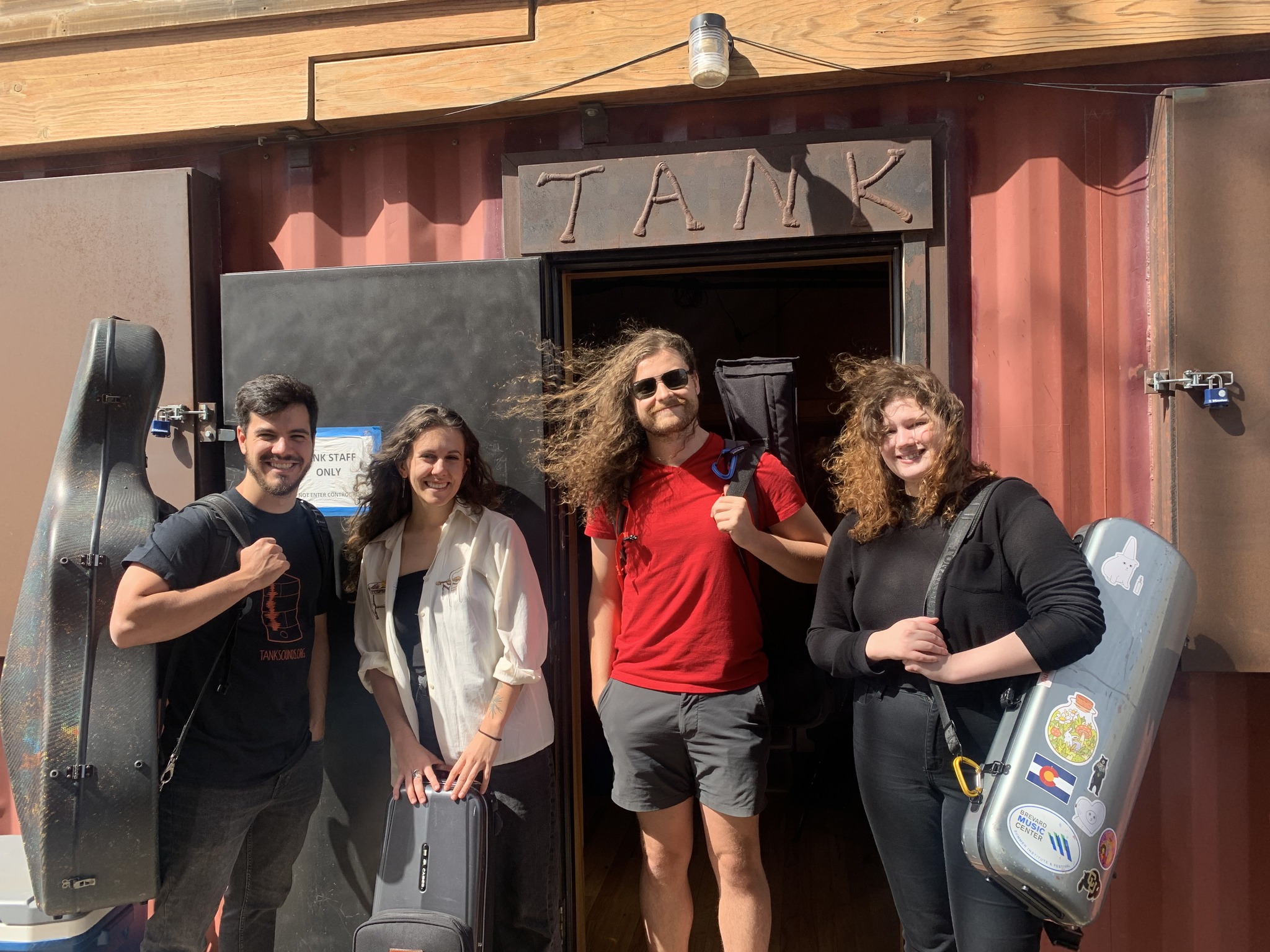
Alan, love having you share your insights with us. Before we ask you more questions, maybe you can take a moment to introduce yourself to our readers who might have missed our earlier conversations?
My name is Alan Mackwell and I am a composer, performer, and field recording artist based here in the beautiful city of Boulder, Colorado. I have been on the “academic” train of music composition for a while: I started my academic career at the Boston Conservatory, where I received my B.M. before moving on to Tufts University in Medford, Massachusetts for my masters degree. Right now, I am pursuing my doctoral degree at the University of Colorado Boulder with the hopes of teaching at the collegiate level later down the line.
The focus of my music has shifted a lot over the years, but these days my music is largely concerned with the landscapes of my childhood; specifically, northern New Mexico, the Permian Basin, Appalachian North Carolina, and East Texas. I find it deeply gratifying to be able to dive into my childhood memories and explore the delicate and beautiful sounds of those spaces. To be able to tell those stories, explore some really special landscape ambiences, and share it with folks who may or may not even be aware those spaces exist is such a rewarding process. My hope is that by bringing my childhood landscapes to the concert hall, I can help drum up awareness for not only their beauty and complexity but also the many environmental and political factors that threaten them.
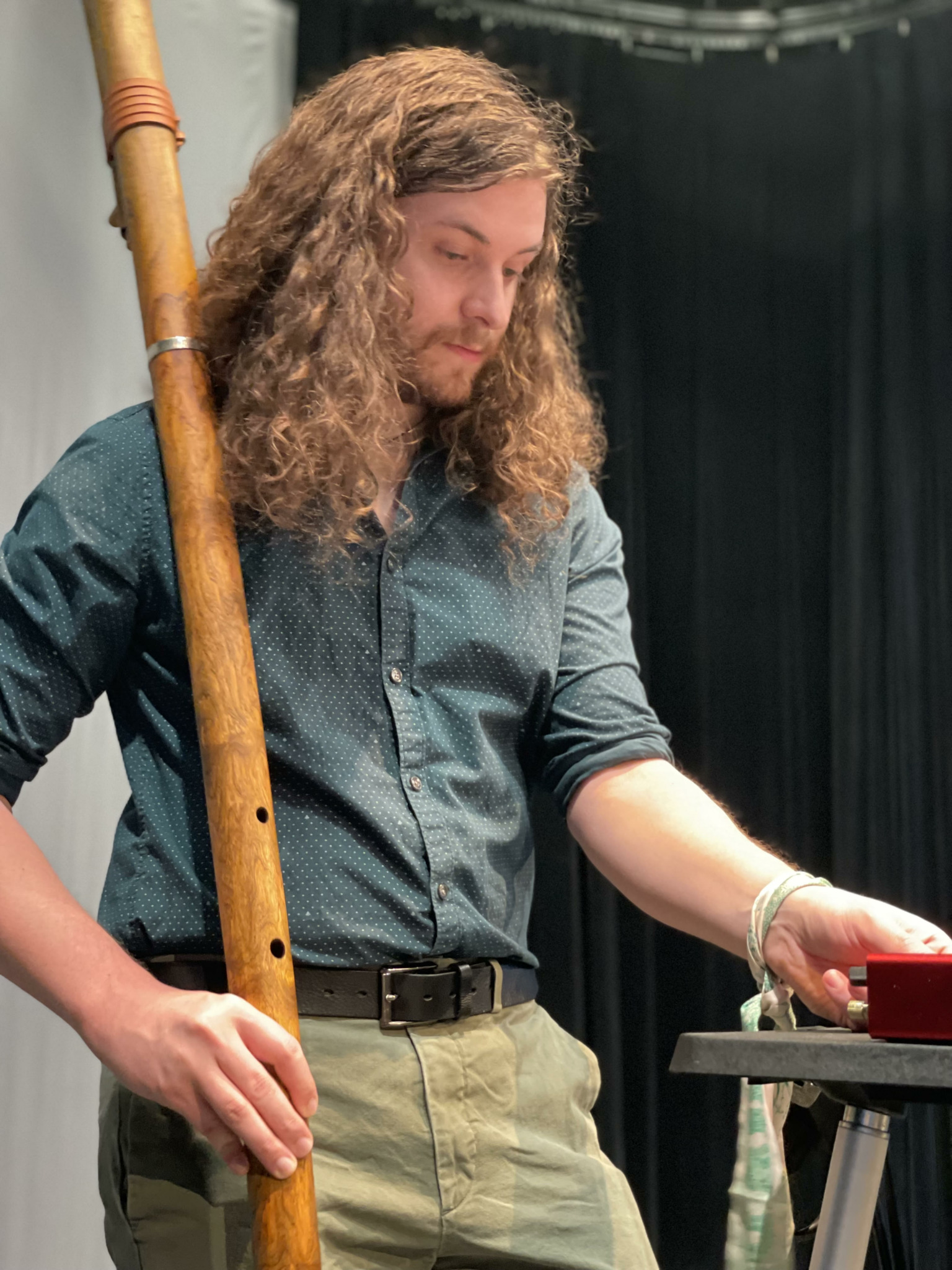
Learning and unlearning are both critical parts of growth – can you share a story of a time when you had to unlearn a lesson?
I can think of so many lessons I had to unlearn, but for the sake of brevity I will limit myself to just one; that said, it is an extremely important one that has ultimately reshaped not only my music, but myself as a person.
As an undergraduate, I found myself caught up in value judgements. I was extremely harsh with my criticisms of music I didn’t like, and extremely passionate about the music I did. When I was faced with art I did not understand, I let confusion get the better of me and devalued that art in my mind. The result was a very, very long period of stylistic stagnation that frustrated myself, my peers, and my teachers. It did not end until I learned just how much great art I had prevented myself from even thinking about.
I say all of this because there has been a recent surge of social media posts and interview questions that toss around the term “accessible” music, and to say it bothers me is to put it kindly. Firstly, it adds an unnecessary extra definition to a word that can be used productively in regards to learners and musicians with disabilities or barriers of access to musical institutions and resources. Secondly, it implies that all of art falls into two vastly oversimplified categories (accessible and inaccessible), which puts into question the criteria (which is almost entirely based on pre-20th century Western art music, Western pop music, and generally any music that has origins in Western triadic harmony) that determines what pieces of art go in either category. The reality is that all music that we can access is inherently accessible, but some music simply suggests prerequisite knowledge of certain cultural structures; John Coltrane’s Giant Steps, for instance, may not easily processed by people who don’t listen to jazz, but those who do will be amazed by the sheer vastness of Coltrane’s musicianship. Even then, some jazz-heads may not enjoy it that much. What it all comes down to is taste, which is never universal (and encourages a very different conversation).
My advice for all music enjoyers is this; quit casting value judgements disguised as points about accessibility. Allow yourself to be confused. Embrace it! Confusion is a great platform for curiosity and learning. Ask yourself more questions like “specifically, why don’t I like this piece?”, “why does this piece sound out of my depth?”, or “what does this piece do that challenges my preconceptions of what music is supposed to sound like, and why did the artist make those decisions?”. By being proactive about not limiting yourself to specific musical styles or structures, you open up many lifetimes of new music for yourself to engage with, immerse in, and learn from, ultimately making yourself a more knowledgeable musician and global citizen.
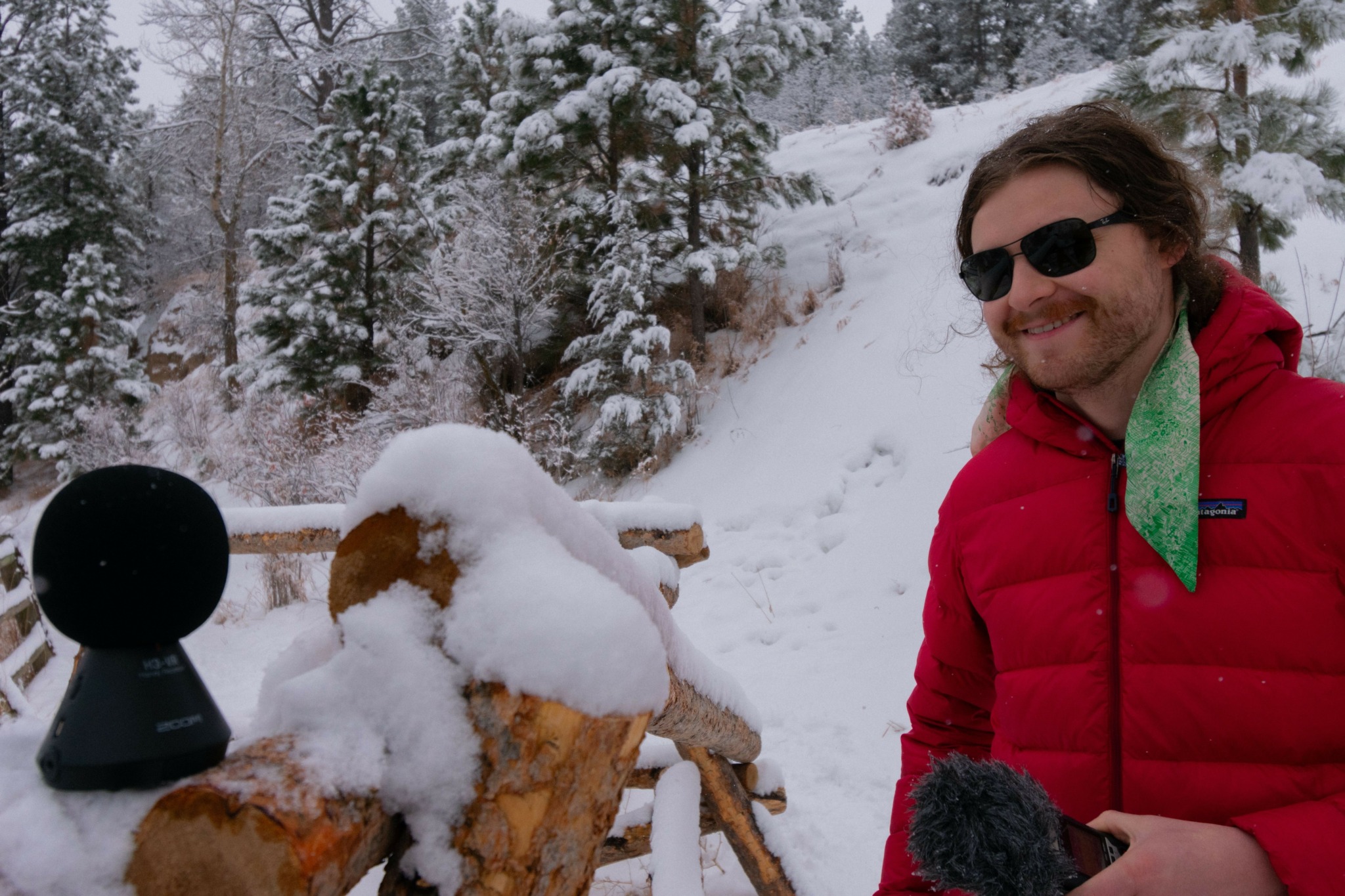
Is there something you think non-creatives will struggle to understand about your journey as a creative?
This is a really wonderful and humbling question that doesn’t get asked nearly as often as it should. As artists, especially ones based in academic institutions where you are constantly surrounded by other artists, it can be hard to imagine (or even perceive, at times) what people without nearly a decade of higher-ed musical training must think of the whole artistic process.
I have the great fortune of having a very supportive immediate family; my mother and brother are both unpracticed musicians in non-creative fields, and my father is not a musician. That said, they all support me and every facet of my career, be it my decision to continue my grad school training or not to pursue a more financially lucrative avenue of composition. I think their (and by proxy, most folks) support and understanding about the things I do mostly comes down to achievements and meeting goals; that is, premieres, performances, and awards. These are all very good things, of course, and it is true that these are things I work towards.
But there is a major element to it all that most folks do not recognize, and that is the actual writing process itself. A number of years ago I gave up doing all of my writing in a notation software at the behest of Dr. Marti Epstein, a teacher of mine at the time (whose hand-engraving is some of the most gorgeously crafted in our field). I still engrave my scores digitally, but all of my drafts are hand-written, scratched onto large sheets of manuscript paper. A lot of folks, both musicians and non-musicians, don’t seem to fully understand why I do my writing this way; it is super time-consuming, takes up a lot of real estate, and I have no MIDI playback to fall back on when I am orchestrating or don’t know which compositional direction to go. The reality is that while premieres and performances and awards are great and I am so grateful for them, doing my handwritten drafts is the part about composition I love the most; there is an element to it that physicalizes my music, gives me the ability to be so much more conscious of the things I write without notation software guiding my musical decisions. Handwriting lets me live in my imagination more, lets me explore my internalized soundscapes naturally and authentically. It’s also a lot easier to look at a sheet of paper for hours upon hours than a computer screen.
All this said – handwriting things, be it music, dreams, notes, stories, or drawings, is way more rewarding than I think it gets credit for. Try it the next time you get an opportunity!
Contact Info:
- Website: https://alanmackwellmusic.com
- Instagram: alanmackwell_2
- Facebook: https://www.facebook.com/alan.mackwell
- Linkedin: https://www.linkedin.com/in/alan-mackwell-a7894b232
- Youtube: https://www.youtube.com/channel/UCallhI2Co2PoI3HDtM8v7sQ
- Soundcloud: https://soundcloud.com/alanmackwell
